
Theodore Roosevelt Jr., often referred to as Teddy or T. R., was an American statesman, soldier, conservationist, historian, naturalist, explorer and writer who served as the 26th president of the United States from 1901 to 1909. He previously was involved in New York politics, including serving as the state's 33rd governor for two years. He was the vice president under President William McKinley for six months in 1901, assuming the presidency after McKinley's assassination. As president, Roosevelt emerged as a leader of the Republican Party and became a driving force for anti-trust and Progressive policies.

William Jennings Bryan was an American lawyer, orator, and politician. Beginning in 1896, he emerged as a dominant force in the Democratic Party, running three times as the party's nominee for President of the United States in the 1896, 1900, and 1908 elections. He served in the House of Representatives from 1891 to 1895 and as the Secretary of State under Woodrow Wilson from 1913 to 1915. Because of his faith in the wisdom of the common people, Bryan was often called "the Great Commoner", and because of his rhetorical power and early fame as the youngest presidential candidate, "the Boy Orator".

Eugene Luther Gore Vidal was an American writer and public intellectual known for his acerbic epigrammatic wit. His novels and essays interrogated the social and sexual norms he perceived as driving American life. Vidal was heavily involved in politics, and unsuccessfully sought office twice as a Democratic Party candidate, first in 1960 to the United States House of Representatives, and later in 1982 to the United States Senate.

Burr: A Novel is a 1973 historical novel by Gore Vidal that challenges the traditional Founding Fathers iconography of United States history, by means of a narrative that includes a fictional memoir by Aaron Burr, in representing the people, politics, and events of the U.S. in the early 19th century. It was a finalist for the National Book Award in 1974.
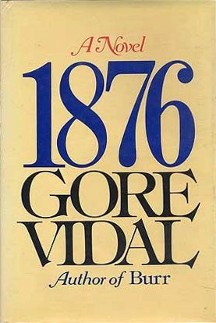
1876 is the third historical novel in Gore Vidal's Narratives of Empire series. It was published in 1976 and details the events of a year described by Vidal as "probably the low point in our republic's history".
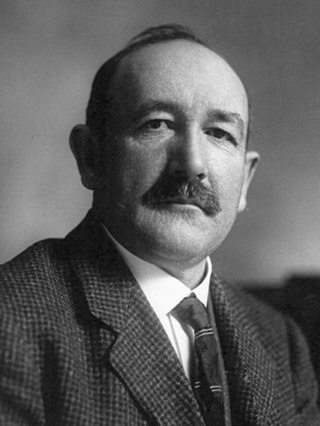
Homer Calvin Davenport was a political cartoonist and writer from the United States. He is known for drawings that satirized figures of the Gilded Age and Progressive Era, most notably Ohio Senator Mark Hanna. Although Davenport had no formal art training, he became one of the highest paid political cartoonists in the world. Davenport also was one of the first major American breeders of Arabian horses and one of the founders of the Arabian Horse Club of America.
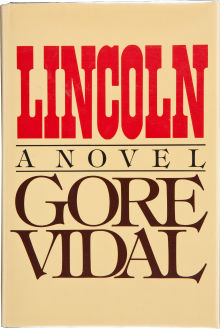
Lincoln: A Novel is a 1984 historical novel, part of the Narratives of Empire series by Gore Vidal. The novel describes the presidency of Abraham Lincoln and extends from the start of the American Civil War until his assassination. Rather than focus on the Civil War itself, the novel is centred on Lincoln's political and personal struggles. Though Lincoln is the focus, the book is never narrated from his point of view ; Vidal instead writes from the perspective of key historical figures. He draws from contemporary diaries, memoirs, letters, newspaper accounts, the biographical writings of John Hay and John Nicolay, and the work of modern historians.

The McKinley National Memorial in Canton, Ohio, United States, is the final resting place of William McKinley, who served as the 25th president of the United States from 1897 to his assassination in 1901. Canton was a significant place in McKinley's life; he lived there, practiced as an attorney, and conducted his political campaigns from the town.

Washington, D.C. is a 1967 novel by Gore Vidal. The sixth novel in his Narratives of Empire series of historical novels, it begins in 1937 and continues into the Cold War, tracing the families of Senator James Burden Day and influential newspaper publisher Blaise Sanford.
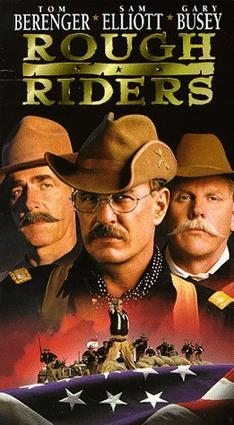
Rough Riders is a 1997 American television miniseries directed and co-written by John Milius about future President Theodore Roosevelt and the regiment known as the 1st US Volunteer Cavalry; a.k.a. the Rough Riders. The series prominently shows the bravery of the volunteers at the Battle of San Juan Hill, part of the Spanish–American War of 1898. It was released on DVD in 2006. The series originally aired on TNT with a four-hour running time, including commercials, over two consecutive nights during July 1997. It is, as of 2022, John Milius' last directorial credit for a film.

The presidency of Theodore Roosevelt started on September 14, 1901, when Theodore Roosevelt became the 26th president of the United States upon the assassination of President William McKinley, and ended on March 4, 1909. Roosevelt had been the vice president for only 194 days when he succeeded to the presidency. A Republican, he ran for and won by a landslide a four-year term in 1904. He was succeeded by his protégé and chosen successor, William Howard Taft.

The Golden Age, a historical novel published in 2000 by Gore Vidal, is the seventh and final novel in his Narratives of Empire series.
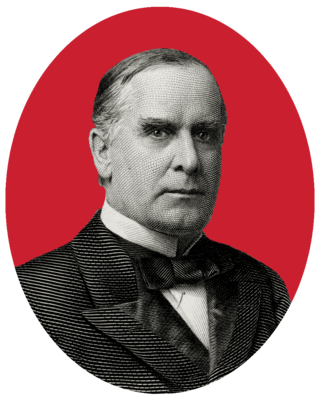
The 1900 Republican National Convention was held June 19 to June 21 in the Exposition Auditorium, Philadelphia, Pennsylvania. The Exposition Auditorium was located south of the University of Pennsylvania, and the later Convention Hall was constructed along the building's east wall. It was demolished in 2006.

Hollywood is the fifth historical novel in Gore Vidal's Narratives of Empire series. Published in 1990, it brings back the fictional Caroline Sanford, Blaise Sanford and James Burden Day and the real Theodore Roosevelt and William Randolph Hearst from Empire. Events are seen through the eyes of the Sanfords, Day, and the historical Jess Smith, a member of the Ohio Gang.
The Narratives of Empire series is a heptalogy of historical novels by American author Gore Vidal, published between 1967 and 2000, which chronicle the dawn-to-decadence history of the "American Empire"; the narratives interweave the personal stories of two families with the personages and events of U.S. history. Despite the publisher's preference for the politically neutral series-title "American Chronicles", Vidal preferred the series title "Narratives of Empire". The seven novels can be read in either historical or publication order without losing narrative intelligibility.

The presidency of William McKinley began on March 4, 1897, when William McKinley was inaugurated and ended September 14, 1901, upon his assassination. A longtime Republican, McKinley is best known for conducting the successful Spanish–American War (1898), freeing Cuba from Spain; taking ownership of the Republic of Hawaii; and purchasing the Philippines, Guam and Puerto Rico. It includes the 1897 Dingley Tariff which raised rates to protect manufacturers and factory workers from foreign competition, and the Gold Standard Act of 1900 that rejected free silver inflationary proposals. Rapid economic growth and a decline in labor conflict marked the presidency and he was easily reelected. He was succeeded by Vice President Theodore Roosevelt following his death.

The first inauguration of Theodore Roosevelt as the 26th president of the United States, took place on Saturday, September 14, 1901, at the Ansley Wilcox House, at 641 Delaware Avenue in Buffalo, New York, following the death of President William McKinley earlier that day. The inauguration – the fifth non-scheduled, extraordinary inauguration to ever take place and the first in the 20th century – marked the commencement of the first term of Theodore Roosevelt as president. John R. Hazel, U.S. District Judge for the Western District of New York, administered the presidential oath of office. Aged 42 years and 322 days, Roosevelt was and currently is the youngest person to become president.
Events from the year 1901 in the United States.

The following events occurred in September 1901:

The history of U.S. foreign policy from 1897 to 1913 concerns the foreign policy of the United States during the Presidency of William McKinley, Presidency of Theodore Roosevelt, and Presidency of William Howard Taft. This period followed History of U.S. foreign policy, 1861–1897 and began with the inauguration of McKinley in 1897. It ends with Woodrow Wilson in 1913, and the 1914 outbreak of World War I, which marked the start of new era in U.S. foreign policy.

















